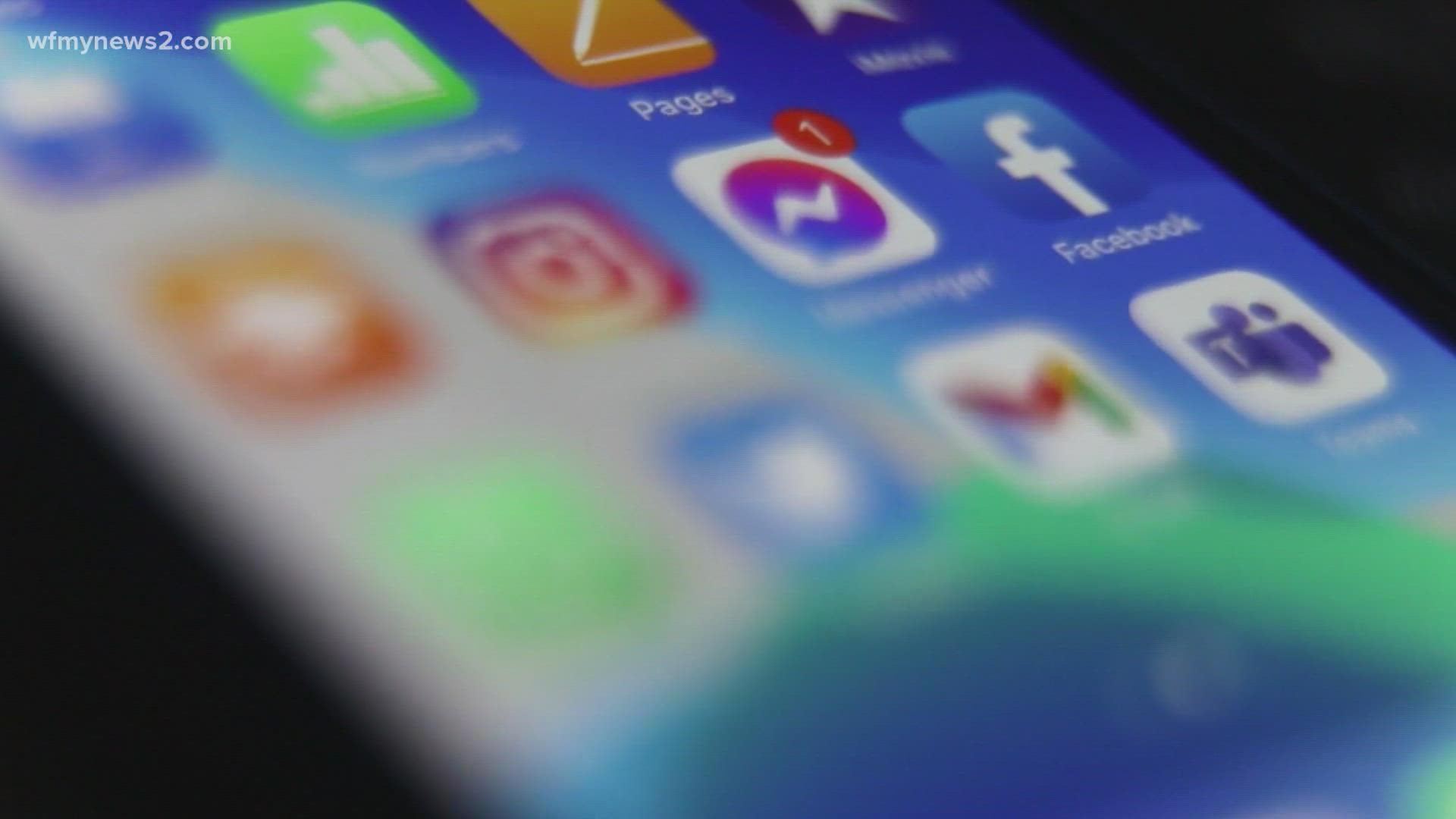GREENSBORO, N.C. — Social media is all over the place. It continues getting bigger, especially for children.
The Department of Health and Human Services reported screen time doubled for kids during the pandemic. They were spending nearly eight hours a day in front of a screen for activities not related to school. The same report found 81% of children 14-22 said they use social media "daily" or "almost constantly."
This spike in usage came as experts warned social media was helping fuel a youth mental health emergency. Lawmakers have accused platforms like Facebook and Instagram of not doing enough to protect children.
Instagram CEO Adam Mosseri testified in front of a Senate committee Wednesday. He defended the platform and said they care about how their app impacts people.
"I'm concerned about anybody who feels worse about themselves after using the platform," Mosseri said. "Certainly, anyone, any one individual, because we're talking about people here not numbers, that has any suicidal thoughts."
Prior to his testimony, Mosseri announced new safety features coming next year. Instagram will allow parents and teenagers to monitor how much time they spend on the app. Parents will also be able to set time limits.
Other social media companies have introduced additional safety measures this year. Facebook does not allow minors to share their location on its site. It also launched specific messaging apps geared towards kids. That gives parents direct control of who kids can message.
YouTube requires video creators to label content specifically made for kids to protect children. It prevents the site from collecting data and turns off certain features like comments.
Kim Smith, an associate professor at North Carolina A&T, said companies will go as far as they can without hurting their profitability. He thinks parents need to take control of their children's social media use.
"A lot of parents are pressuring congress to do something about bringing in social media techies," Smith said. "Parents have a responsibility too. They should be limiting their child's access to social media."
Smith also said he wants to see a media literacy curriculum introduced for K-12 students. He believes social media isn't going away anytime soon, so children need tools to know how to use it properly.
U.S. Surgeon General Dr. Vivek Murthy released an advisory Tuesday regarding the mental health emergency. It addressed how multiple parties, ranging from parents to social media companies, can help alleviate the issue. See his recommendations here.

